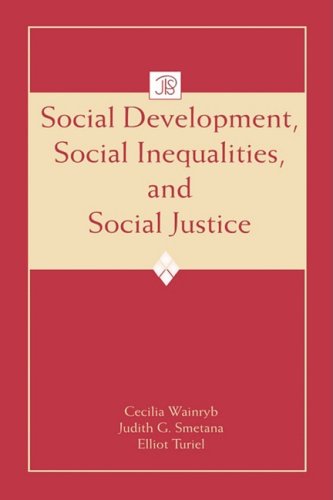

Most ebook files are in PDF format, so you can easily read them using various software such as Foxit Reader or directly on the Google Chrome browser.
Some ebook files are released by publishers in other formats such as .awz, .mobi, .epub, .fb2, etc. You may need to install specific software to read these formats on mobile/PC, such as Calibre.
Please read the tutorial at this link: https://ebookbell.com/faq
We offer FREE conversion to the popular formats you request; however, this may take some time. Therefore, right after payment, please email us, and we will try to provide the service as quickly as possible.
For some exceptional file formats or broken links (if any), please refrain from opening any disputes. Instead, email us first, and we will try to assist within a maximum of 6 hours.
EbookBell Team

4.3
38 reviewsThis volume considers previously separate bodies of research on social justice, social equality, and social development. Eminent scholars from a variety of disciplines discuss the latest research to help us understand the relation between social inequalities and social development. In so doing, the book documents the powerful ways that social inequalities frame development and explores the conflicts that arise in the context of these inequalities. It illustrates how people around the world make judgments about these conditions and how they resist or change the practices they deem unjust. By bringing together these perspectives, the editors hope to demonstrate how understanding social development carries with it the possibility of change and social justice.
The book considers processes of social development. It examines Piaget’s ideas about morality and relates them to children’s thinking about social rights. An interdisciplinary review of research from developmental, social, and health psychology, social policy, anthropology, and philosophy, follows this introduction. Each contributor examines the historical, developmental, and social processes that influence beliefs regarding social justice and equality and the consequences of living in conditions of injustice. The book considers:
Intended for researchers and advanced students in developmental, social, cultural, and health psychology, policy, anthropology, and philosophy interested in a world that is socially just.